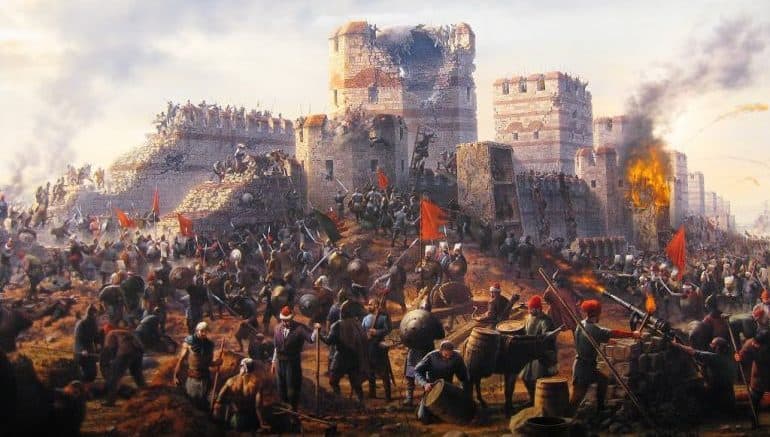In 1453, as the ancient walls of Constantinople crumbled under Ottoman cannons, an unexpected chain of events was set in motion that would reshape the course of human knowledge.
The fall of Constantinople, the last bastion of the Roman Empire, triggered an intellectual exodus that would ignite the flames of the Renaissance and pave the way for modern science.

As the city fell, Byzantine scholars fled westward, carrying with them precious archives and documents from the classical Greek and Byzantine eras. These treasures found fertile ground in Italy, where humanists eagerly embraced this influx of ancient wisdom.
Western Europe had laboured under an ‘inferiority complex’ for centuries, believing the ancients to be intellectually and technologically superior. The rediscovery of classical texts challenged this notion, inspiring Renaissance thinkers to not just study but to surpass their predecessors.
This shift in mindset was revolutionary. It broke the shackles of medieval scholasticism and birthed a new era of empirical investigation.
Scholars like Copernicus and Vesalius saw themselves not as mere students of ancient knowledge but as its inheritors and improvers.

Fueled by this Byzantine brain drain, the Renaissance became the crucible in which modern scientific thinking was forged. It cultivated a spirit of inquiry that dared to question established dogmas and seek new truths through observation and experiment.
In a twist of historical irony, the fall of an empire became the rise of an intellectual revolution. From the ashes of Constantinople, the phoenix of modern science took flight, forever changing our understanding of the world.
The article first appeared in Sick History.
READ MORE: Alcetas II of Epirus, a member of the Aeacidae dynasty.

